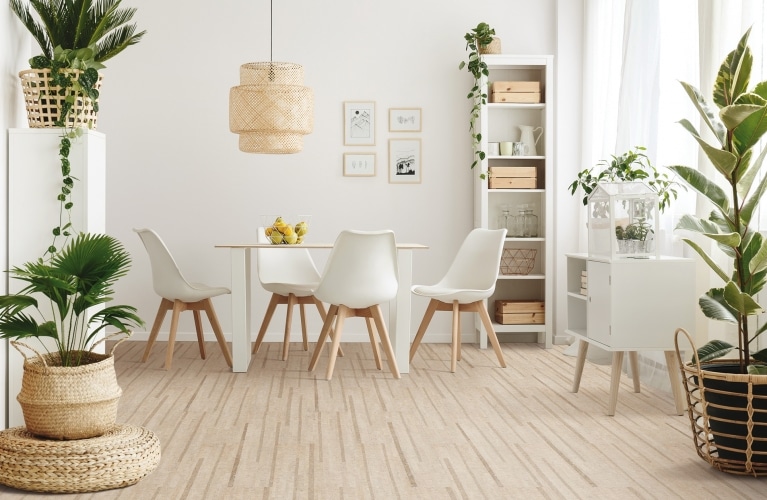Cork flooring has been around for several decades, but more recently it has become one of the more popular flooring materials available. Why is cork flooring so popular? There are several reasons, but the fact that people have become much more environmentally aware certainly plays a role in its prevalence. In this post, we’ll go over several reasons why cork flooring is so popular today.
Sustainability
Unlike virgin solid hardwood, no trees are felled when cork flooring is created. Cork is produced from the bark of the cork tree which means that it can be stripped away without having to fell the tree. The tree remains alive and continually produces cork during its lifespan. Cork also biodegrades which means less landfill space is used up after the flooring is replaced.
Cost
Cork is often cheaper than solid or engineered hardwoods. And while it sits at a similar price point as bamboo (another sustainable flooring material,) cork is easy enough to work with that it’s possible to be installed by a competent DIYer. Bamboo and hardwood floors have much less room for error when installed by amateurs. This allows handy cork flooring buyers to save on installation costs as well.
Underfoot Feel
Due to its honeycomb-like inner structure, cork provides some cushion underfoot. This makes it feel softer and warmer than many other flooring materials. Cork also acts as an excellent insulator which adds to its warmer, more comfortable feel. Compared to tile, stone, laminate or even hardwood, cork provides a much more comfortable underfoot feel.
Maintenance And Repairs
While cork flooring requires several layers of protective sealant, once applied, cork is relatively simple to maintain. Regular sweeping and the occasional damp mop is all that’s needed to keep the floor clean and polished. Sealants need to be reapplied periodically – it’s recommended every three to seven years depending on the amount of wear that occurs. Similar to solid hardwood flooring, solid cork floors can also be sanded down and refinished several times. Properly maintained, a cork floor can last 40 years or more.
Hypoallergenic
For those with sensitive dispositions, cork flooring is hypoallergenic, antimicrobial and resistant to mildew. Cork trees produce a waxy secretion, known as suberin, to prevent wood rot. It also repels insects and molds while providing no hiding places for dust, dander or other allergy-causing substances.

